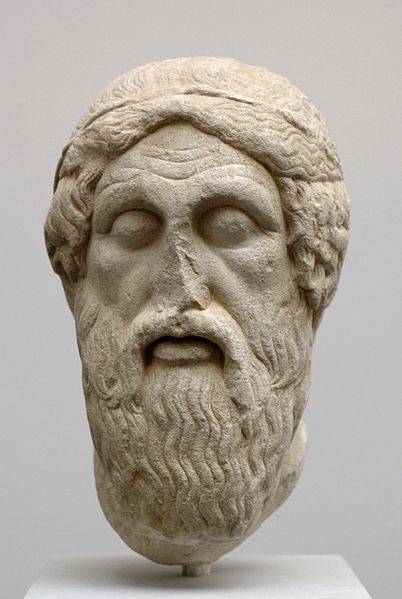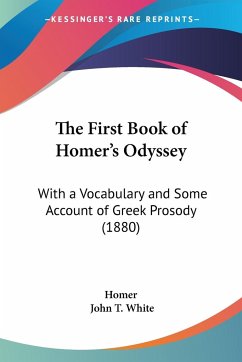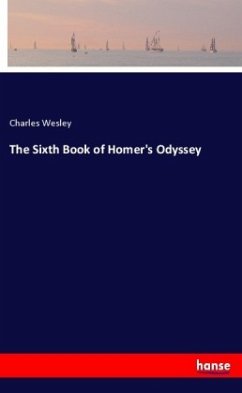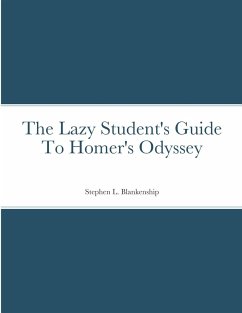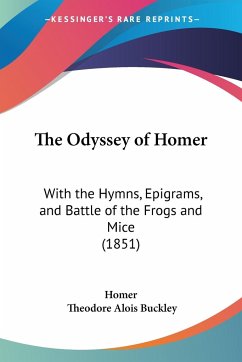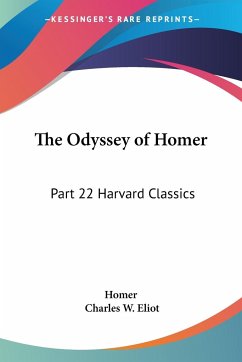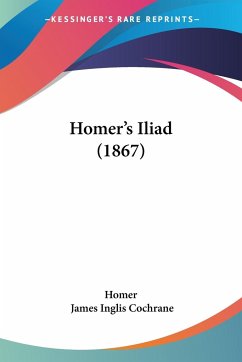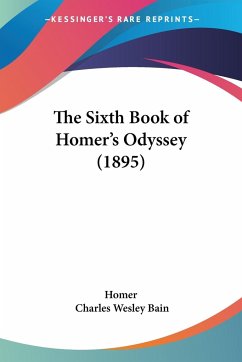
The Sixth Book of Homer's Odyssey (1895)
Versandkostenfrei!
Versandfertig in 1-2 Wochen
21,99 €
inkl. MwSt.

PAYBACK Punkte
11 °P sammeln!
The Sixth Book of Homer's Odyssey, published in 1895, is a classic epic poem that tells the story of the Greek hero Odysseus and his long journey home after the Trojan War. The sixth book focuses on Odysseus' encounter with the goddess Calypso, who has been keeping him on her island for seven years. The book also features the character of Nausicaa, a princess who helps Odysseus when he washes up on her shore. Throughout the book, Homer weaves together themes of love, loyalty, and the struggle for survival. This edition of the book is a faithful translation of the original Greek text, complete ...
The Sixth Book of Homer's Odyssey, published in 1895, is a classic epic poem that tells the story of the Greek hero Odysseus and his long journey home after the Trojan War. The sixth book focuses on Odysseus' encounter with the goddess Calypso, who has been keeping him on her island for seven years. The book also features the character of Nausicaa, a princess who helps Odysseus when he washes up on her shore. Throughout the book, Homer weaves together themes of love, loyalty, and the struggle for survival. This edition of the book is a faithful translation of the original Greek text, complete with detailed annotations and notes to help readers understand the historical and cultural context of the story.This scarce antiquarian book is a facsimile reprint of the old original and may contain some imperfections such as library marks and notations. Because we believe this work is culturally important, we have made it available as part of our commitment for protecting, preserving, and promoting the world's literature in affordable, high quality, modern editions, that are true to their original work.



